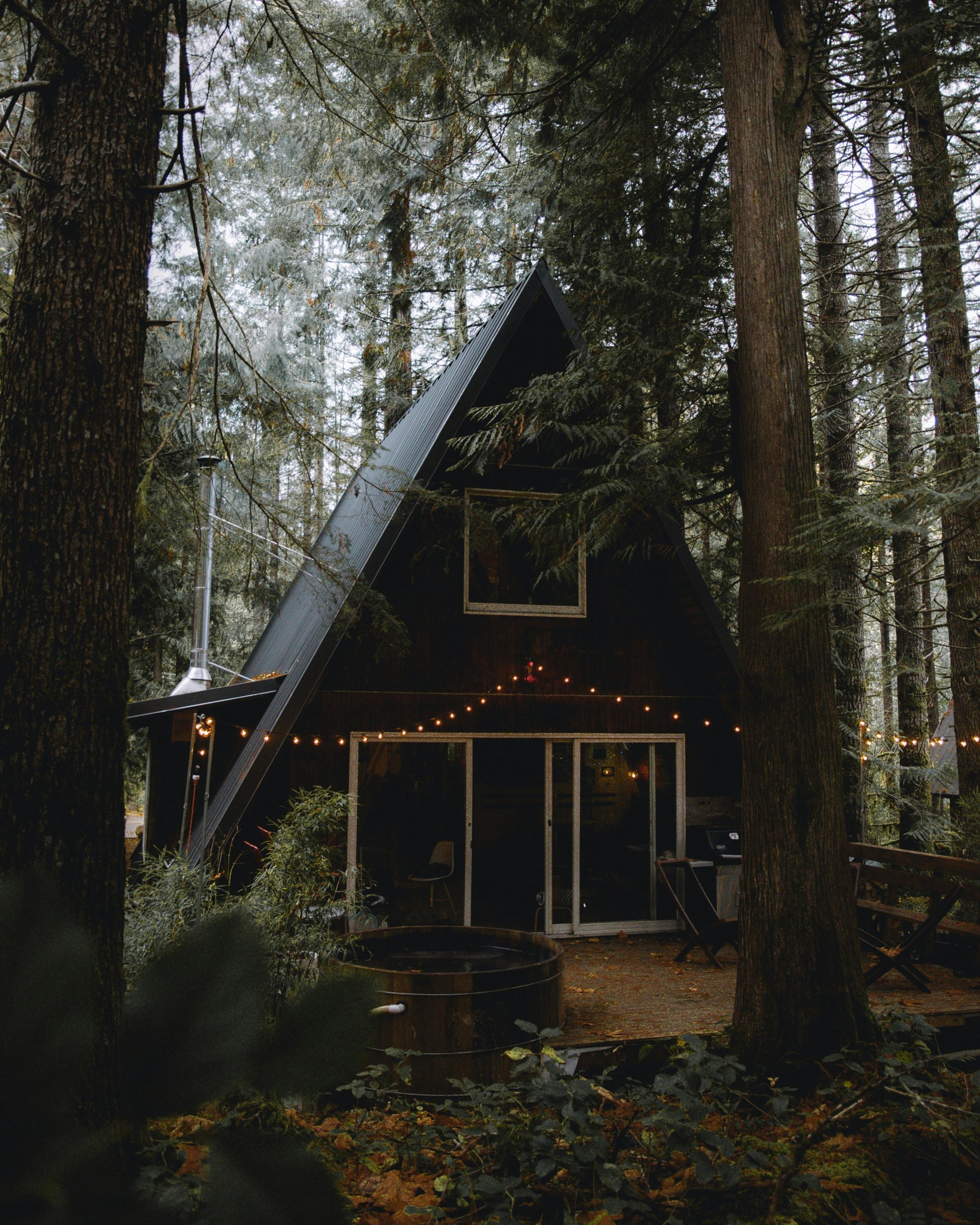Social Links Widget
Click here to edit the Social Media Links settings. This text will not be visible on the front end.
How to Make a Strong Offer in Saskatoon’s Competitive Real Estate Market

In today’s Saskatoon real estate market, competition is heating up. With low inventory and strong demand, it’s not uncommon for well-priced homes to receive multiple offers within days—or even hours—of hitting the market. If you’re a buyer, that means one thing: you need to be ready to act fast and smart.
At Schmid Realty, we help buyers successfully navigate this kind of market every day. Here are our top tips for making a strong, strategic offer that stands out—without overpaying or feeling pressured.
1. Get Pre-Approved—Not Just Pre-Qualified
In a competitive market, a pre-approval letter from your lender is non-negotiable. It shows sellers you’re serious, financially ready, and able to close. Better yet, it gives you clarity on your budget so you can move quickly when the right home comes along.
Bonus tip: We often connect our clients with trusted mortgage professionals who can help speed up the process when time is tight.
2. Know the Market
A strong offer starts with a clear understanding of the home’s value. That’s where our local expertise comes in. We’ll provide recent comparable sales (comps) and help you determine a price that’s competitive but grounded in real data—not emotion.
Some homes may be priced to spark bidding wars; others might be sitting below market value to attract attention. We’ll help you read between the lines.
3. Keep Your Offer Clean
The fewer conditions attached to your offer, the more attractive it is to a seller. While it’s important to protect yourself (especially with financing and home inspections), we’ll help you write a clean, confident offer that strikes the right balance between caution and competitiveness.
In some cases, you may consider:
- Increasing your deposit to show good faith
- Pre-booking an inspection if you anticipate competition
4. Be Flexible with Possession Dates
If the seller needs a quick close—or more time before moving—being flexible with dates can give your offer the edge, even if your price isn’t the highest. We’ll communicate with the listing agent to understand what matters most to the seller and tailor your offer accordingly.
5. Include a Personal Touch (When It Makes Sense)
In some cases, a short note to the seller can make your offer more memorable—especially if you’re buying a family home from someone with emotional ties. It’s not always the deciding factor, but it can be a meaningful way to stand out when offers are close.
6. Work with a Team That Moves Fast
Timing is everything in a competitive market. At Schmid Realty, we stay on top of new listings the moment they hit the MLS® and are ready to act when you are. We’ll guide you through the offer process quickly and strategically, so you don’t miss an opportunity.
Let’s Win Your Next Home—Together
Buying a home in Saskatoon right now can feel overwhelming—but you don’t have to navigate it alone. With the right strategy and the right team, you can compete and win in this market.
Ready to make a move? Contact Schmid Realty today and let’s talk about how to make your next offer your strongest one yet.
Silverwood Heights: A Desirable Saskatoon Neighbourhood

Saskatoon is a city filled with unique neighbourhoods, each offering its own charm, amenities, and sense of community. One area that continues to be a sought-after location for families, professionals, and retirees alike is Silverwood Heights. Nestled along the scenic banks of the South Saskatchewan River in the city’s northwest, Silverwood Heights boasts a blend of natural beauty, excellent amenities, and a welcoming community vibe.
A Rich History and Strong Community Feel
Developed primarily in the 1980s, Silverwood Heights quickly became a popular choice for homeowners seeking a suburban feel with easy access to the city’s core. The neighbourhood has grown into one of Saskatoon’s most established communities, known for its well-maintained homes, beautiful green spaces, and strong community involvement.
Real Estate in Silverwood Heights
Homebuyers in Silverwood Heights will find a variety of housing options, from spacious single-family homes to modern townhouses. The majority of homes in the area are well-built, mid-range to upscale properties, many of which feature large yards and mature trees. With a mix of original homeowners and newcomers to the area, Silverwood Heights maintains a stable real estate market with strong resale values.
Parks and Outdoor Activities
One of the biggest draws of Silverwood Heights is its access to outdoor recreation. The neighbourhood is home to numerous parks and playgrounds, including WJL Harvey Park, Meewasin Park, and Silverwood Golf Course. The Meewasin Valley Trail runs along the riverbank, offering residents breathtaking views and endless opportunities for walking, running, and cycling. Whether you’re an outdoor enthusiast or just enjoy a peaceful walk along the water, Silverwood Heights delivers the perfect backdrop.
Top-Tier Schools and Family-Friendly Environment
Silverwood Heights is an excellent neighbourhood for families, thanks to its selection of top-rated schools. The area is home to multiple elementary schools, including Silverwood Heights School, Brownell School, Sister O’Brien School, and École St. Paul. Additionally, high school students can easily access Bishop James Mahoney High School nearby. The strong sense of community and abundance of parks make it an ideal place to raise children.
Convenient Amenities and Shopping
Residents of Silverwood Heights enjoy a variety of nearby shopping and dining options. With Lawson Heights Mall just minutes away, locals have access to grocery stores, boutiques, restaurants, and essential services. The area is also well-served by public transit, making it easy to get around the city.
A Great Place to Call Home
If you’re looking for a neighbourhood in Saskatoon that offers a combination of convenience, natural beauty, and strong community spirit, Silverwood Heights should be at the top of your list. Whether you’re a young family, a professional, or a retiree, this established neighbourhood provides everything you need for a high quality of life.
Thinking about buying or selling a home in Silverwood Heights? As trusted Saskatoon real estate agents, we’re here to help you navigate the market and find the perfect home. Contact us today to learn more about available properties in this fantastic neighbourhood!
New Year, New Home: Top 3 Tips for Finding Your Dream Home in 2025

As we welcome 2025, many of us are setting goals and envisioning new beginnings. If one of your resolutions is to find a new place to call home, you’re in good company. The real estate market continues to evolve, offering new tools and opportunities to help buyers and renters find their perfect match. Here are the top three tips for navigating the housing market and securing your dream home this year.
1. Leverage Technology for a Competitive Edge
Technology has transformed the way we search for homes. In 2025, virtual reality (VR) tours, AI-powered property matchmakers, and secure digital payment methods are making the process more efficient than ever. Here’s how to make the most of these tools:
- Explore VR and 3D Tours: Save time by taking virtual tours of properties from the comfort of your current home. Many listings now offer immersive experiences that allow you to explore every nook and cranny.
- Use AI-Powered Platforms: Apps and websites can analyze your preferences and suggest homes tailored to your needs. These platforms consider factors like commute times, nearby amenities, and your design preferences.
- Opt for Secure Digital Payments: Many platforms now offer secure and efficient digital payment options for deposits and rental payments, simplifying transactions and reducing paperwork.
2. Understand Market Trends and Your Budget
The 2025 housing market is dynamic, with fluctuations in prices and interest rates that vary by location. Here’s how to stay informed and prepared:
- Research Local Trends: Dive into market reports to understand the areas that are trending up and those that might offer better value.
- Factor in Rising Interest Rates: If you’re planning to buy, consider locking in a mortgage rate sooner rather than later, as experts predict gradual increases throughout the year.
- Set a Realistic Budget: Account for hidden costs like property taxes, maintenance, and insurance. Use online calculators to get a clear picture of your financial boundaries.
3. Work with Knowledgeable Professionals
While technology can provide a wealth of information, there’s no substitute for expert guidance. Collaborate with professionals who understand the 2025 market landscape:
- Real Estate Agents: Partner with agents who specialize in your desired area. They can provide insights, negotiate on your behalf, and help you navigate complex transactions.
- Mortgage Brokers: A broker can help you secure the best loan terms and explain financing options that align with your goals.
- Inspectors and Appraisers: Don’t skip this step. A professional inspection and appraisal can save you from costly surprises down the line.
Finding a new home is an exciting journey, and with the right tools and strategies, 2025 could be the year you move into your dream space. Stay proactive, informed, and open to new possibilities as you explore the market. Whether you’re buying your first home, upgrading to a larger space, or downsizing, these tips will help you navigate the process with confidence.
Here’s to new beginnings and a home that brings joy and comfort in the year ahead. Happy house hunting!
Top 3 Underrated Neighbourhoods in Saskatoon: Hidden Gems Worth Considering

When it comes to real estate in Saskatoon, everyone knows the popularity of neighbourhoods like Nutana, River Heights, and Stonebridge. But Saskatoon has a few hidden gems that fly under the radar, providing fantastic living opportunities at a more affordable price point. Let’s explore three underrated Saskatoon neighbourhoods that are attracting savvy buyers looking for value, charm, and community spirit.
1. Brevoort Park: An Established, Family-Friendly Community
Brevoort Park is a mature neighbourhood with a rich sense of community and family-focused amenities. Established in the 1960s, it boasts tree-lined streets, well-maintained homes, and close proximity to some of Saskatoon’s best schools. Despite being centrally located, Brevoort Park is often overlooked in favor of more modern subdivisions, but its value and livability make it worth a second look.
- Schools & Parks: The neighbourhood is home to Brevoort Park School and St. Matthew School, making it an ideal choice for families. The area has numerous parks, including Brevoort Park, which offers sports fields, playgrounds, and scenic walking paths.
- Affordable Homes: Brevoort Park offers a range of properties, from modest bungalows to spacious family homes. Buyers will appreciate the affordability, especially compared to nearby neighbourhoods like Holliston and Nutana.
- Access & Convenience: Located just a few minutes from downtown, this neighbourhood offers easy access to Circle Drive and numerous shopping amenities on 8th Street. For those who value a mix of tranquility and accessibility, Brevoort Park is a hidden treasure.
2. Avalon: A Quiet, Green Oasis Close to the River
Avalon is often overlooked, but it’s a gem for those seeking a quiet, green, and well-connected neighbourhood close to the South Saskatchewan River. This area offers a peaceful suburban feel with the added benefit of convenient access to downtown Saskatoon, making it a prime choice for young professionals, families, and retirees alike.
- Parks and Nature: Avalon borders the South Saskatchewan River, giving residents quick access to scenic riverside trails and Diefenbaker Park, a hub for outdoor activities and festivals. The neighbourhood’s Avalon Park is also a local favorite, offering playgrounds, walking trails, and sports facilities.
- Community Spirit: Avalon has an active neighbourhood association, hosting events and activities that foster a tight-knit community atmosphere. The area also has many charming mid-century homes, which add to the neighbourhood’s character.
- Hidden Value: Home prices in Avalon tend to be lower than in neighboring areas like Nutana and Buena Vista, making it a great choice for buyers looking for value in a central location with easy access to nature and community amenities.
3. Confederation Park: A Growing Community with New Development Potential
Confederation Park is one of Saskatoon’s best-kept secrets. It has long been a more affordable area, but recent developments have attracted new families, young professionals, and first-time homebuyers. With a mix of established homes and new builds, this neighbourhood is seeing a gradual transformation, with more amenities being added to cater to its growing community.
- Diverse Housing Options: Confederation Park offers a range of homes, from affordable single-family houses to newer townhouse developments. This variety makes it an accessible option for first-time buyers or those looking to upgrade without breaking the bank.
- Amenities Galore: Confederation Park residents enjoy close proximity to shopping centers like Confederation Mall, various dining options, and healthcare facilities. The area also has good public transportation connections, allowing residents to access other parts of Saskatoon easily.
- Family-Oriented Amenities: Confederation Park is designed with families in mind, offering numerous parks, playgrounds, and recreation areas. The Al Anderson Park is a popular destination for residents, featuring play areas, sports fields, and picnic spots perfect for family gatherings and outdoor activities. Additionally, the neighborhood has several well-regarded schools, including Bishop Roborecki School and Confederation Park Community School, making it a convenient and family-friendly choice.
Exploring Saskatoon’s understated neighbourhoods can offer buyers a unique opportunity to find great value and experience the benefits of community-focused, well-located living spaces. These neighbourhoods offer the chance to own in an area with character, amenities, and a promising future. So, if you’re looking for your next home or an investment property in Saskatoon, don’t overlook Brevoort Park, Avalon, and Confederation Park – they may just be the hidden gems you’ve been waiting to discover.
Ready to find your perfect spot in Saskatoon? Contact us to explore these neighbourhoods and more!
Vacation Homes and Second Properties: Tips for Buying Your Dream Getaway

Investing in a vacation home or second property can be an exciting venture. Whether you’re looking for a peaceful retreat, a rental income source, or a future retirement spot, buying a vacation home requires careful planning and consideration. Here are some essential tips to guide you through the process.
1. Determine Your Purpose
Before diving into the market, clarify why you want to buy a second property. Are you looking for a vacation spot, an investment property to rent out, or a combination of both? Understanding your primary purpose will help you make informed decisions about location, size, and amenities.
2. Choose the Right Location
Location is crucial when purchasing a vacation home. Consider the following factors:
- Proximity: How far is the property from your primary residence? A place within a few hours’ drive may be more convenient for frequent use.
- Attractions: Look for areas with desirable features like beaches, mountains, lakes, or cultural attractions.
- Accessibility: Check the availability of airports, highways, and public transportation.
- Local Market: Research the real estate market in the area. Is it a popular vacation destination? What are the trends in property values?
3. Evaluate the Property
When evaluating potential properties, consider:
- Size and Layout: Ensure the property meets your needs regarding the number of bedrooms, bathrooms, and living spaces.
- Condition: Assess the property’s condition. Older homes might have charm but could require more maintenance.
- Amenities: Look for features that enhance your experience, such as a pool, proximity to activities, or scenic views.
- Seasonality: Consider the climate and how it affects the property’s use year-round.
4. Understand the Costs
Buying a second home involves more than just the purchase price. Be prepared for additional costs, including:
- Mortgage Payments: If you’re financing the property, factor in monthly mortgage payments.
- Property Taxes: Research local property tax rates.
- Insurance: Vacation homes often require additional insurance coverage, such as flood or hurricane insurance.
- Maintenance: Budget for regular upkeep, repairs, and property management if you’re not nearby.
- Utilities: Account for utility costs, especially if the property will be vacant for extended periods.
5. Financing Options
Securing financing for a vacation home can be different from your primary residence. Here are some common options:
- Conventional Loans: These loans typically require a higher down payment (often 20-30%) and come with stricter credit requirements.
- Home Equity Loans: If you have significant equity in your primary home, you might consider a home equity loan or line of credit.
- Vacation Home Loans: Some lenders offer specific loans for second homes with favorable terms.
- Cash Purchase: If you have the means, paying cash can simplify the buying process and eliminate monthly mortgage payments.
6. Rental Potential
If you plan to rent out your vacation home, consider the rental market in the area:
- Demand: Research the demand for short-term rentals in the location.
- Rental Income: Estimate potential rental income and compare it to your costs.
- Property Management: Decide whether you’ll manage rentals yourself or hire a property management company.
7. Legal and Tax Considerations
Understanding the legal and tax implications of owning a second home is essential:
- Zoning Laws: Check local zoning laws and homeowners association rules regarding short-term rentals.
- Tax Benefits: Second homes can offer tax benefits, such as mortgage interest deductions, but rules differ from primary residences.
- Rental Income Tax: If you rent out the property, you’ll need to report rental income and may be eligible for certain deductions.
8. Visit the Property
Before making a final decision, spend time in the area and visit the property multiple times. This will give you a better feel for the location, the neighborhood, and the property itself.
Buying a vacation home or second property can be a rewarding investment, offering a place to escape and potential rental income. By carefully considering your needs, researching the market, and understanding the financial and legal aspects, you can make a smart and satisfying purchase. Happy house hunting!
Moving with Pets: Top 5 Tips for a Smooth Transition

Moving to a new home can be a stressful experience, not only for you but also for your furry companions. Pets are sensitive to changes in their environment, and a move can cause anxiety and confusion. As a realtor who cares about your clients and their pets, here are the top five tips to make the moving process smoother for everyone involved.
1. Prepare an Overnight Kit for Your Pet
Just as you would pack an essentials bag for yourself, it’s crucial to prepare an overnight kit for your pet. This kit should include enough food, water, toys, and any medications they might need for the first few days in your new home. Having these items readily accessible will help your pet feel more at ease amidst the chaos of moving boxes and new surroundings.
2. Keep Your Pet’s Routine as Normal as Possible
Pets thrive on routine, and moving can disrupt their sense of stability. Try to maintain their regular feeding, walking, and playtime schedules as much as possible before, during, and after the move. Familiar activities can provide comfort and reduce stress for your pet during this transitional period.
3. Create a Safe Space for Your Pet on Moving Day
Moving day can be hectic with movers coming in and out, doors being left open, and loud noises. To prevent your pet from getting stressed or accidentally escaping, set up a quiet and secure room where they can stay during the move. Make sure to include their bed, toys, and some food and water. Place a sign on the door to let movers and family members know that the room is off-limits to avoid any disturbances.
4. Introduce Your Pet to the New Home Gradually
Once you arrive at your new home, it’s essential to introduce your pet to the new environment gradually. Start by confining them to one room with their familiar belongings, such as their bed, toys, and litter box (for cats). This allows them to acclimate to the new scents and sounds without feeling overwhelmed. Gradually, you can allow them to explore more of the house at their own pace.
5. Update Your Pet’s Information
Moving to a new home means a new address. Ensure that your pet’s identification tags and microchip information are updated with your new address and contact details. This is crucial in case your pet gets lost in the new neighborhood. It’s also a good idea to find a new veterinarian in your area and transfer your pet’s medical records.
Moving with pets requires extra care and planning, but with these tips, you can help ensure a smooth transition for your furry friends. By preparing an overnight kit, maintaining their routine, creating a safe space, gradually introducing them to the new home, and updating their information, you can minimize stress and make the move as seamless as possible.
Remember, a little preparation goes a long way in keeping your pets happy and comfortable during a move. Happy moving!
Beyond the Down Payment: Understanding the Full Cost of Buying a Home in Saskatchewan

Buying a home in Saskatchewan is an exciting venture, but it’s important to be aware of the additional costs beyond the down payment. These hidden expenses can impact your budget significantly, so it’s essential to plan for them. Here’s a breakdown of the various costs associated with buying a home in this beautiful province:
1. Legal Fees
When purchasing a home, you’ll need a lawyer to complete your real estate transaction. Legal fees in Saskatchewan typically range from $1,000 to $2,500, depending on the complexity of the purchase and the lawyer’s rates. These fees cover the cost of preparing and reviewing purchase documents, completing the title transfer, and ensuring that all legal requirements are met.
2. Land Title Transfer (ISC Fees)
The Information Services Corporation (ISC) of Saskatchewan handles the registration of land titles. When you buy a home, you must pay a fee to transfer the property’s title from the seller to yourself. ISC fees are calculated based on the property’s purchase price and can range from a few hundred to several thousand dollars.
3. Home Insurance
Home insurance is essential to protect your new investment. It covers the building, your belongings, and liability in case someone is injured on your property. The cost of home insurance varies widely based on the value of the property, the contents inside, and the level of coverage you choose. Typically, homeowners in Saskatchewan might expect to pay anywhere from $800 to $2,000 annually.
4. Property Tax Adjustments
You may also need to reimburse the seller for any prepaid property taxes. This cost varies depending on the property tax rate in your municipality and the timing of your purchase. Property taxes are generally calculated based on the assessed property value and are used to fund local services and infrastructure.
5. Mortgage Insurance
If your down payment is less than 20% of the home’s purchase price, you’ll need to purchase mortgage default insurance. This protects the lender in case you default on your loan. The premium for this insurance is usually added to your mortgage amount and paid over the life of the loan. Premiums vary based on the amount borrowed and the size of your down payment.
6. Moving Costs
Moving costs can vary greatly depending on the distance of your move and whether you hire professional movers or decide to move yourself. For a local move, hiring movers in Saskatchewan can cost between $800 and $2,200. If you’re moving from another province, the costs can be significantly higher.
7. Home Inspection and Appraisal Fees
Before finalizing your home purchase, it’s advisable to have a home inspection, which can cost anywhere from $300 to $600. This helps identify any issues with the home’s structure and systems. An appraisal, required by most lenders to confirm the home’s value, typically costs between $300 and $500.
While the dream of homeownership is certainly exciting, it’s important to budget for these additional costs. By being prepared, you can ensure a smoother transaction and avoid any unpleasant financial surprises. If you have questions or need assistance navigating the home-buying process in Saskatchewan, don’t hesitate to contact a local real estate professional.
Mortgage Basics 101

Have you recently stepped into the exciting world of homeownership? Congratulations! But wait, are you feeling a bit overwhelmed by the various mortgage options available in Canada? Don’t worry, you’re not alone! The real estate market can be quite different from province to province, and there are many factors to consider. That’s why we’re here to help you navigate the mortgage landscape and explore the different options available. Whether you’re looking for variable rates or fixed terms, there’s a diverse array of Canadian mortgage options to suit your needs and help you achieve your homeownership dreams. Let’s dive in!
Fixed-Rate Mortgages
Many Canadians prefer fixed-rate mortgages when buying a home because they offer stability and predictability. When you choose a fixed-rate mortgage, your interest rate stays the same throughout the loan term, which is typically one to ten years. This consistency can give you peace of mind because your monthly mortgage payments won’t change, making budgeting easier and more manageable.
Keep in mind that fixed-rate mortgages usually have slightly higher initial interest rates than variable-rate mortgages. However, if you’re looking for financial security and stability, a fixed-rate mortgage could be the perfect option for you.
Variable-Rate Mortgages
On the other hand, variable-rate mortgages offer flexibility and could potentially save you money in the long run. With a variable-rate mortgage, your interest rate will change depending on the prime lending rate set by the Bank of Canada. This means that your monthly payments may vary, but it also means that you could benefit from lower interest rates during periods of economic downturns.
Variable-rate mortgages usually have lower initial interest rates than fixed-rate mortgages, which could be a great option for those of you who are comfortable with a bit of financial uncertainty. If you’re looking to take advantage of potential interest rate decreases, a variable-rate mortgage could be the way to go.
Open vs. Closed Mortgages
Another important distinction to consider when exploring mortgage options in Canada is open versus closed mortgages. Open mortgages allow you to pay off your mortgage partially or fully without any penalty at any time during the term. They provide more flexibility, but usually come with higher interest rates.
Conversely, closed mortgages offer lower interest rates but have some restrictions. For instance, you may have to pay a penalty if you pay off the mortgage before the end of the term. Ultimately, the choice between an open or closed mortgage depends on your financial situation and how much flexibility you require.
Conventional vs. High-Ratio Mortgages
Additionally, Canadian home buyers must decide between conventional and high-ratio mortgages. With a conventional mortgage, you’ll need to put down at least 20% of the purchase price as a down payment. But with a high-ratio mortgage, you can make a smaller down payment, which is great news if you haven’t saved up a lot of money. The only catch is that you’ll need to get mortgage loan insurance through either the Canada Mortgage and Housing Corporation or a private insurer. Keep in mind that while high-ratio mortgages make homeownership more accessible, they do come with additional costs in the form of insurance premiums.
Canadian homebuyers are fortunate to have a variety of mortgage options tailored to their individual needs and preferences. Whether you want stability, flexibility, or affordability, there’s a mortgage solution out there that can help you achieve your dream of homeownership. To make the best decision for your financial situation and long-term goals, it’s important to understand the differences between fixed-rate and variable-rate mortgages, open and closed mortgages, and conventional and high-ratio mortgages. Don’t worry though, it’s not as complicated as it sounds! Just remember to chat with a mortgage professional who can help you explore all the available options—including financing programs provided by the Government of Canada—and find the best mortgage solution for you. With the right support and knowledge, your house hunting journey can be a happy and successful one!
Finding Your Dream Home: Unconventional Tips and Tricks

Embarking on the journey to find your dream home can be both exhilarating and overwhelming. While traditional home-buying advice may include considerations such as location, budget, and amenities, there are also a few unconventional tips and tricks that can help you uncover the hidden gems in the real estate market. In this blog, we will explore some unconventional strategies to make your quest for the perfect home more enjoyable and successful.
Explore Off-Peak Times
Real estate, like any industry, has its busy seasons—most commonly spring and fall. When searching for a home, consider exploring your desired neighbourhoods during off-peak times to minimize competition. Sellers during these periods may also be more motivated, and you might have better negotiating power.
This can also be true for scheduling showings, even during the busy season! Most home buyers angle for evening and weekend viewings to minimize schedule disruption for themselves. However, weekday mornings or early afternoons might reveal a different atmosphere and provide insights into the daily life of the community. You might discover hidden parks and vibrant local businesses or even meet potential future neighbours.
Social Media Sleuthing
Harness the power of social media to get a feel for a neighbourhood before physically visiting. Join local community groups or forums to engage with residents, ask questions, and gain insider perspectives. This virtual exploration can offer valuable insights into the neighbourhood dynamics and help you make a more informed decision.
Take a Stroll, Not Just a Drive
Instead of simply driving through your most popular neighbourhoods, take a leisurely stroll to get a genuine sense of the area. Walking allows you to notice details that might be missed from a car, such as the friendliness of neighbours, the condition of homes, or the availability of local amenities within walking distance.
Speak with Local Business Owners
Strike up conversations with local business owners in the area you’re considering. They often have a pulse on the community and can provide valuable insights into the neighbourhood’s strengths and challenges. Additionally, they may share information about upcoming developments or events that could impact the area.
Think Beyond the Obvious Features
When viewing homes, focus on more than just the obvious features. Pay attention to less conventional aspects, like the direction the house faces for natural light, the acoustics of the neighbourhood, or the presence of mature trees that can enhance the aesthetics and value of the property.
Finding your dream home involves more than just checking off a list of criteria. By incorporating these unconventional tips and tricks into your house-hunting strategy, you’ll gain a deeper understanding of potential neighbourhoods and increase your chances of discovering the perfect home that aligns with your lifestyle and preferences. Embrace the adventure, think outside the box, and let your intuition guide you on the path to finding your dream home—with the help of your trusted real estate team, of course!
The Benefits of Using a Real Estate Agent When Buying or Selling a Home

Buying or selling a home can be an exciting but overwhelming experience, and it’s natural to feel unsure of where to start. While the internet is a great resource, it’s easy to get lost in all the information available. That’s where a real estate agent can help! They are experts in the local market and can provide valuable guidance and support throughout the entire process. Here are some of the many benefits of using a real estate agent when buying or selling a home.
Market Knowledge
Immersed in the business day in and day out, real estate agents have a wealth of knowledge about the local housing market. They can provide you with valuable insight on recent sales, current listings, and market trends, helping you make informed decisions. This information can be crucial in setting the right price when selling or negotiating a fair deal when buying a home.
Pricing Expertise
Determining the right price for a property is a delicate balance. Overpricing can scare off potential buyers, while underpricing can result in a financial loss. Real estate agents use their market knowledge and a comparative market analysis to help you set a competitive and realistic price, maximizing your chances of a successful sale.
Access to Exclusive Listings
Real estate agents often have access to properties that aren’t listed on public websites. This inside track can give you a competitive advantage in finding your dream home or selling to the right buyer. It’s not just about what’s available; it’s also about what’s coming soon or selling off-market!
Professional Networking
Experienced real estate agents have built extensive networks of trusted industry professionals, including mortgage brokers, home inspectors, contractors, home staging professionals, and more. These connections can save you time and money during the buying or selling process, proven experts on-hand to make the deal go as smoothly as possible.
Negotiation Skills
Real estate transactions involve complex negotiations, including writing winning offers. Whether you’re a buyer or seller, having a skilled negotiator on your side can make a substantial difference in the outcome. Agents can act as impartial intermediaries, helping you navigate these negotiations successfully, with experience to back it up.
Marketing Expertise
When it comes to selling your home, an agent can provide invaluable assistance in marketing your property effectively. They have access to various marketing tools and platforms, including professional photography, virtual tours, and online listings, helping your home stand out in a competitive market. They know what works and what doesn’t for getting your home not just in front of buyers, but the right buyers!
Time & Stress Savings
One of the best things about working with a real estate agent is the time and stress they can save you. Real estate transactions are time-consuming and can be stressful. They take care of all the paperwork, phone calls, and appointments, freeing up your time to focus on other things. This support can be particularly helpful if you have a busy schedule.
Legal Protection
Real estate transactions involve numerous legal documents, disclosures, and contracts. Real estate agents are well-versed in the legal aspects of the process and can help protect you from potential pitfalls and legal issues.
Market Insight & Future Trends
Real estate agents can offer insights into the local market and predict future trends. This can be particularly valuable in choosing the right home to buy or deciding whether it is the right time to sell. Whether it’s the potential for growth in a specific neighborhood or changes in property values, their knowledge can help you make informed decisions for long-term investments.
In the end, working with a real estate agent can make a significant difference in the outcome of your home buying or selling experience. They provide personalized guidance tailored to your specific needs and goals, helping you find a property that truly meets your requirements. So if you’re feeling overwhelmed by the process or just want some extra support and guidance, consider working with a real estate agent. They can help make the experience smoother, stress-free, and even enjoyable!

 Facebook
Facebook
 X
X
 Pinterest
Pinterest
 Copy Link
Copy Link
